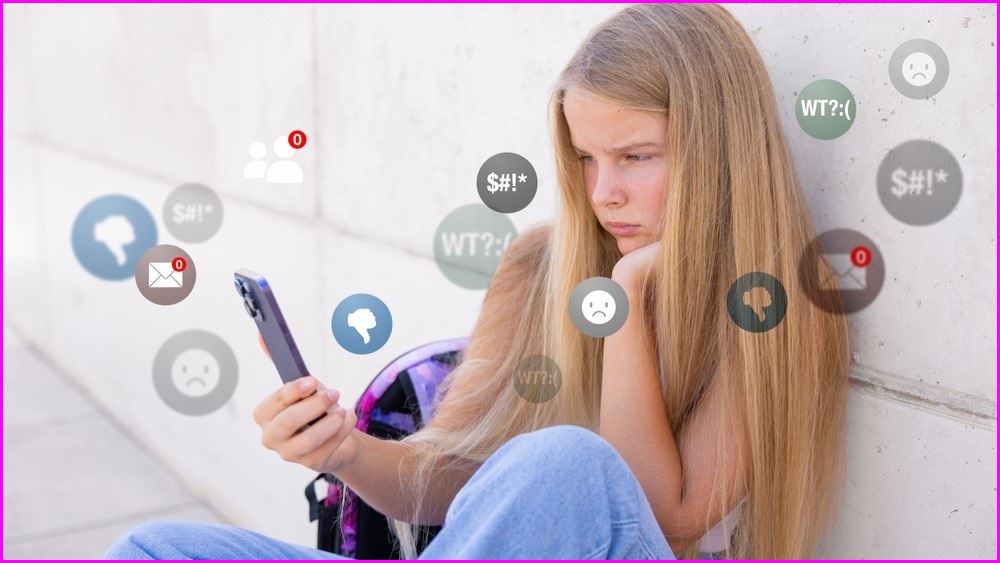The Federal government is poised to introduce legislation that would ban social media for young Australians, but new research suggests that the ban will come too late for some kids.
Analysis of six years of data from the Roy Morgan Risk Monitor shows Australians have never really trusted social media companies – and their perceived exploitation of children is a major reason.
A lack of regulation, the negative impact on self esteem, targeting of content towards children and the addictive nature of the platforms were among the hundreds of thousands of verbatim comments from more than 130,000 Australians about why they trust and distrust brands.
'Like' button driving mental health disorders
The Australian Psychological Society has also found that Australian teens are trapped by social media apps as the ‘like’ button fuels a spike in mental health disorders and soaring rates of suicide and self harm.
Psychologists report that teens are basing their self-worth on the number of likes they receive, and were obsessed about checking their metrics on apps, often left feeling rejected if they didn’t receive instant approval for their posts.
Meanwhile, one commenter told Roy Morgan researchers, “I don't think they are open and honest about what they do with data. I think they use techniques to get people addicted to their platform. I don't believe they do enough to prevent hate speech or bullying or the effect they have on children and teens, especially when it comes to things like body image issues.”
Roy Morgan’s research found the exploitation of children and young people is a “strong contributor to toxic levels of distrust in social media” by Australians, adding that social media has been blamed for not doing enough to protect kids and young people, for giving kids horrible ideas and poor self-esteem, being addictive, not being ethical when producing services that children consume, and for not filtering its users.
The research also shows that the overwhelming majority of Australians believe that social media creates more problems than it solves.
The research firm’s CEO Michele Levine says the results show that the poor behaviour and negative influence of the social media giants has long been an issue of great concern for many Australians.
Levine believes there’s a strong argument for increased education to ensure that young people are aware of the dangers of social media so they can safely navigate these online spaces.
“Since we began measuring trust and distrust way back in 2018, social media has consistently been one of the most distrusted industries in the entire economy.
“The reasons Australians give for distrusting social media brands are some of the most emotive of any industry – it’s visceral.
“This indicates a level of distrust that shows no signs of diminishing anytime soon,” Levine says.
Government to take action
The findings coincide with the Albanese Government announcing a plan to introduce legislation to enforce a minimum age for access to social media and other digital platforms this year.
Prime Minister Anthony Albanese says it’s clear that social media is taking kids away from real friends and real experiences.
“The safety and mental and physical health of our young people is paramount. We’re supporting parents and keeping kids safe by taking this action, because enough is enough,” Albanese said.
Roy Morgan’s survey echoes a second survey from the NSW Government, which also revealed widespread community concerns about the impact of social media on children, young people, and broader society.
Conducted in August and September this year, it engaged more than 21,000 participants and found that 87 per cent support implementing age restrictions for social media use, with 16 being the most suggested minimum age.
The survey highlights a clear correlation between time spent on social media and negative outcomes reported by parents.
The insights gathered from the survey will shape discussions at the upcoming two-day Social Media Summit, to be held in Sydney later this week
NSW Premier Chris Minns said the response to the survey sent a powerful message about the extend of community concerns.
“Parents and children are rightly concerned about this giant global unregulated experiment on young people.”
Parents in particular want age limits put in place, citing concerns over excessive screen time leading to issues such as addiction, exposure to inappropriate content, and the detrimental effect on their children’s daily responsibilities.
Interestingly, young people agreed, with 66 per cent of 16- to 17-year-olds expressing that social media distracts them from essential tasks such as schoolwork and family obligations.










